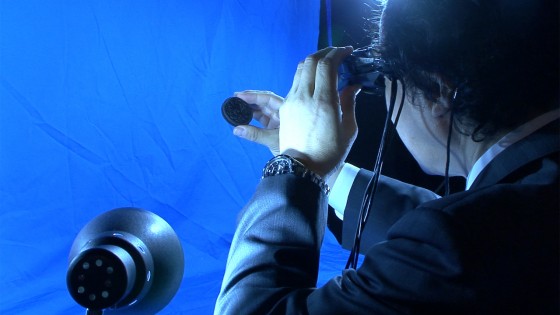
Robohub.org
Change the size of food and your appetite with AR system from Tokyo U.

At the University of Tokyo, the Hirose Tanikawa Group has developed an AR system that can manipulate the user’s feeling of having eaten enough, by changing how big the food appears.
This system features a head-mount display with a camera, and uses image processing to make food look bigger than it actually is. The size of the food in the hands can be changed in real time, while keeping the size of the hands constant. The system creates a natural image by using a deformation algorithm, to alter the shape of the hands in line with the size of the food.
 “This technology can stimulate a feeling of having eaten enough visually. We’ve found that when food looks bigger, you feel full right away, but when it looks small, you don’t feel full even if you eat a lot.”
“This technology can stimulate a feeling of having eaten enough visually. We’ve found that when food looks bigger, you feel full right away, but when it looks small, you don’t feel full even if you eat a lot.”
“In the US, obesity is a huge problem, so there’s a lot of research on obesity. For example, it’s been shown that the amount people eat varies depending on the size of plates and packages. As part of such studies, we’ve been able to confirm that the amount eaten actually changes when the size of the food does.”
“So far, we’ve done tests involving 12 subjects, under quite strict experimental conditions, to see if the amount eaten actually changed. When food was magnified 1.5 times, the amount eaten decreased by about 10%. When it was made to look two-thirds its actual size, the amount eaten increased by about 15%.”
“Currently with this head-mount display, the picture is chroma-keyed using a bluescreen. But we’d like to make this system usable in the home, by using smarter image-processing technology, so it could be used for any food on various kinds of tables. In the future, we hope to develop technology that encourages healthy eating habits without the need to think. For example, high-calorie foods that shouldn’t be eaten much could be automatically magnified by the computer, and foods that should be eaten in larger amounts could be made to look smaller so people will eat more.”
tags: AR, Prototype





